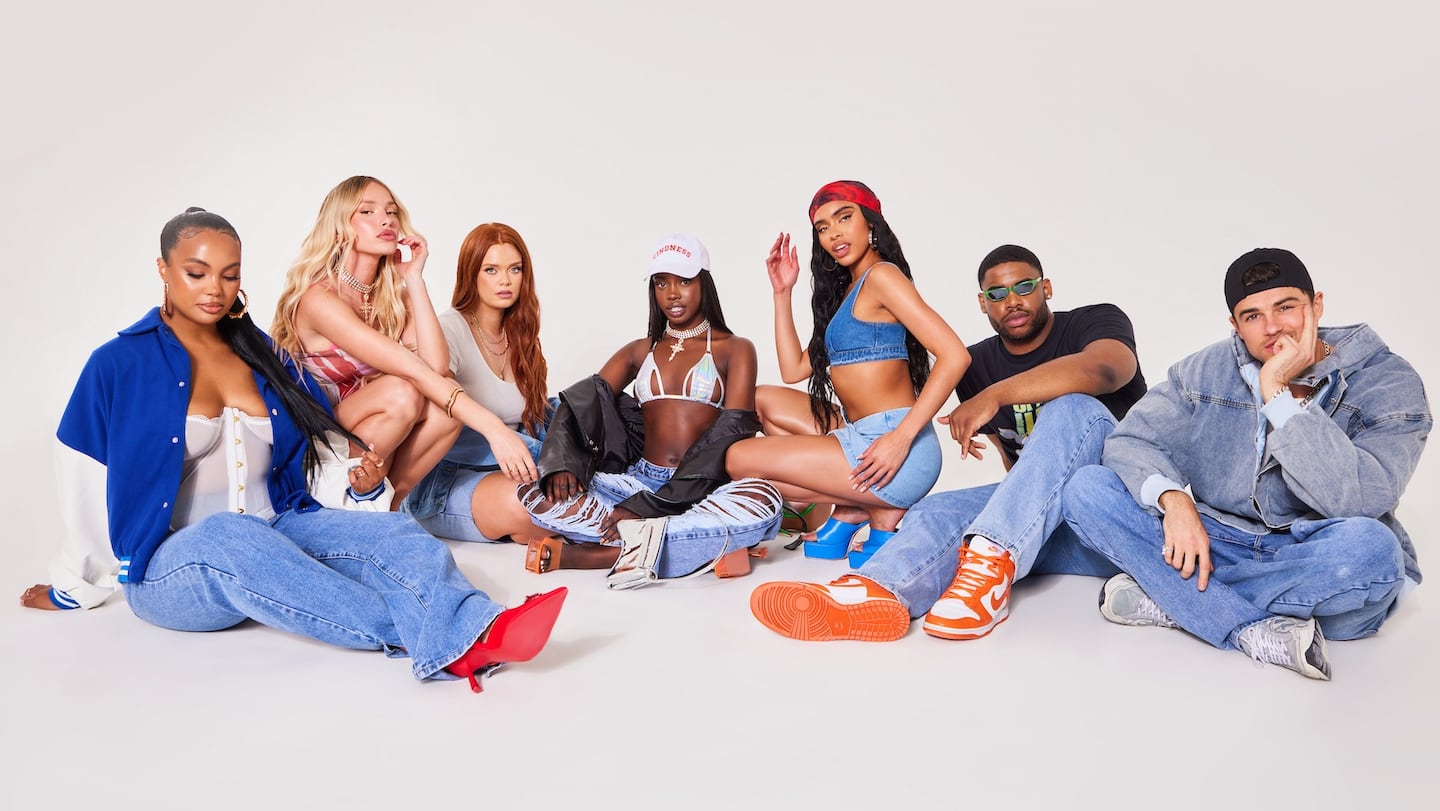
The Business of Fashion
Agenda-setting intelligence, analysis and advice for the global fashion community.

Agenda-setting intelligence, analysis and advice for the global fashion community.

Each week ultra-fast fashion brand PrettyLittleThing drops hundreds of new products, deploying an army of influencers to keep customers coming back for its latest styles of cut-out dresses, crops and cargo pants — often for little more than the cost of a cocktail.
Now it wants to help them resell those hauls when they tire of them.
The new PrettyLittleThing Marketplace app is a peach-toned variation on the label’s usual bubblegum pink shopping experience, where users can buy and sell secondhand fashion.
For PrettyLittleThing, it’s a toehold in the fast-growing resale market and a riposte to criticism that the brand promotes a damaging culture of throwaway fashion that harms the environment and exploits workers.
ADVERTISEMENT
Critics are calling it greenwashing.
“A brand putting a resale platform on their site when they’re selling you this idea of constant newness still, that’s not a positive change,” said writer and consultant Aja Barber.
The debate plays into a broader conversation about the impact of resale as more brands pile into the market, promoting it as a handy way to offset the industry’s impact while doing little to tackle underlying issues of overproduction and overconsumption.
That puts resale at risk of becoming a smokescreen to enable even more, and faster, consumption.
Though the fashion industry was initially leery that digitally native resale platforms would cannibalise sales, that’s changed fast alongside the market’s growth. In the US alone, the secondhand fashion market is expected to hit $57 billion by 2025, according to BoF Insights data.
PrettyLittleThing is late to get in on the action. Roughly 100 brands and retailers, including H&M, Lululemon, Hugo Boss and Net-a-Porter, have launched their own resale channels in the last two years, according to BoF analysis conducted in May. Selfridges said Friday it’s aiming for nearly half of its sales to come from products that contain recycled materials or from channels like resale or rental by 2030.
Most consignment sites have yet to prove they can turn a profit, but brands have embraced the format as a way to drive engagement, build loyalty and signal commitment to sustainability with buzzy consumer-facing launches.
PrettyLittleThing said its marketplace is a response to customer demand for a way to give old clothes a new lease of life and earn money along the way. The brand has been working to burnish its sustainability credentials since a scandal over labour abuses in parent company Boohoo Group’s supply chain in 2020.
ADVERTISEMENT
Resale is a central pillar of circular fashion — an increasingly mainstream strategy to tackle the industry’s climate impact by ensuring products are kept in circulation for as long as possible and recycled at the end of their life.
The jury’s still out on whether resale can actually deliver on these lofty ambitions.
So far, most brands’ forays into the market are so small they don’t even show up as a line item on balance sheets. Many offer store credit for consumers using their platforms, incentivising a new purchase for every pre-loved item put back into circulation.
The result can be a bit like “offsetting carbon emissions,” said Brett Staniland, a model and sustainable fashion editor. “It’s a guilt free shopping trip where we can do whatever we want; we can continue to overproduce as much as we want.”
And how consumers actually engage with these platforms remains fuzzy. A December survey by French luxury resale platform Vestiaire Collective found its customers mostly shop the site instead of buying new and say they use it to buy more expensive, but fewer items. But US rival The RealReal’s most recent resale report found customers are churning through products more quickly, with the number of items bought and then sold on again on the site doubling since the start of the pandemic.
“If we are trying to get people to consume secondhand at the same rate they consume fast fashion we are going to run into trouble,” said Barber.
That’s not to dismiss the value of resale; reusing and recycling clothes already in the mix is is an important part of the solution. But only when coupled with the much more uncomfortable challenge of making and consuming less new stuff to begin with.
For more BoF sustainability coverage, sign up now for our Weekly Sustainability Briefing by Sarah Kent.
 Opens in new window
Opens in new windowTraces of cotton from Xinjiang were found in nearly a fifth of samples from American and global retailers, highlighting the challenges of complying with a US law aimed at blocking imports that could be linked to forced labour in China.
The fashion industry continues to advance voluntary and unlikely solutions to its plastic problem. Only higher prices will flip the script, writes Kenneth P. Pucker.
The outerwear company is set to start selling wetsuits made in part by harvesting materials from old ones.
Companies like Hermès, Kering and LVMH say they have spent millions to ensure they are sourcing crocodile and snakeskin leathers responsibly. But critics say incidents like the recent smuggling conviction of designer Nancy Gonzalez show loopholes persist despite tightening controls.